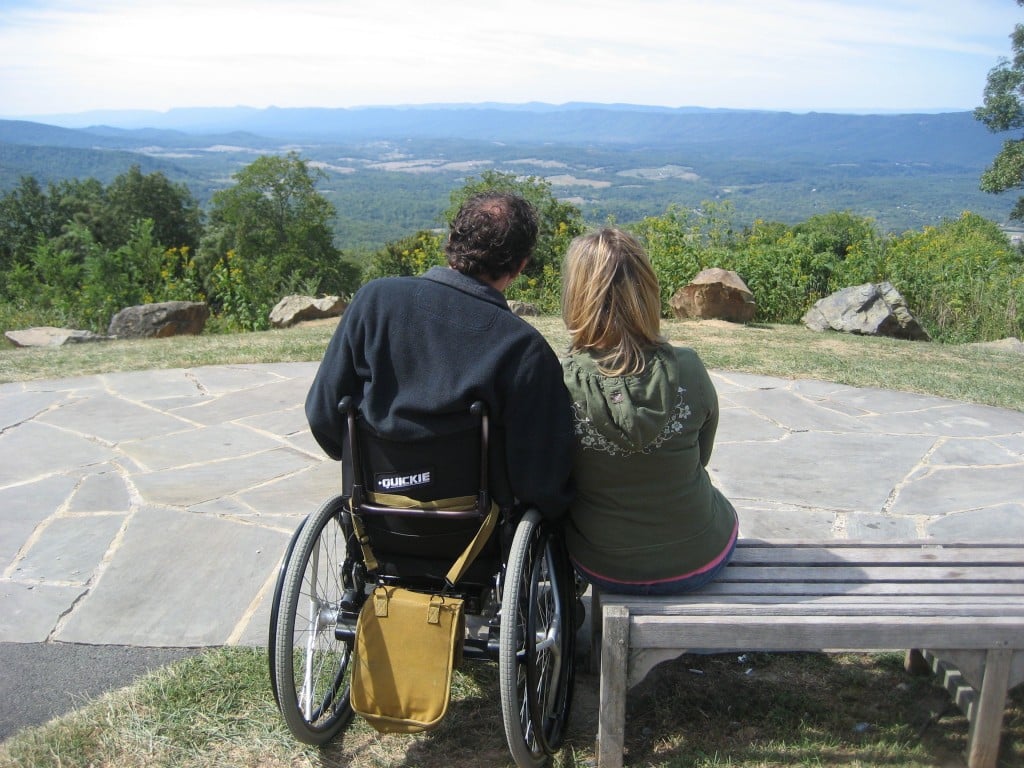 I’m married to a handsome, funny, caring man who happens to be a c5/6 quadriplegic. Our life isn’t ordinary. At times we feel like rock stars riding the high of achievement together. Sometimes, we hold each other and just cry. This is a look at some of the challenges we’ve faced in our marriage of just four years so far, together. Admittedly, this is our experience. I recognize each marriage and each disability and couple face different challenges in different ways.
I’m married to a handsome, funny, caring man who happens to be a c5/6 quadriplegic. Our life isn’t ordinary. At times we feel like rock stars riding the high of achievement together. Sometimes, we hold each other and just cry. This is a look at some of the challenges we’ve faced in our marriage of just four years so far, together. Admittedly, this is our experience. I recognize each marriage and each disability and couple face different challenges in different ways.
1) Finances: being the breadwinner.
The unemployment statistics for people with disabilities are staggering. Things like physical challenges, unpredictability, transportation and fear of losing much needed benefits play into this. My husband is paralyzed from the chest down because of a spinal cord injury sustained when he was a teenager. There have been times in his life he has worked full-time. Since we’ve been married, twice he has worked part-time, and one of those times, we ended up losing so much benefits-wise, that we ended up in a financial hole.
I am a career woman, I always have been. So, it makes sense for me to be the breadwinner. We have had some tight times, but thankfully we’ve always had what we needed. There is tension when there isn’t enough to pay the bills, though. And there is guilt and shame, for both of us. My husband feels like he’s not being the provider he should be as a husband. I feel like I’ll never be able to be the wife I want to be, and make enough money for us to live at the level that makes us happy. Add the dream of having children to the mix and that’s where it gets really complicated, financially.
2) Responsibilities: cooking/cleaning/yard work — it’s all you (or at least, it feels like it).
I remember when my husband and I first got engaged. I was interested to see how my family would take my choice to marry someone who is in a wheelchair. They loved Michael and were on board. They each had their own questions. My sister’s questions were all practical. “Who’s going to mow the lawn?” she would ask. “I guess I will.”
This seemed fine and good. And most of the time it is. But there are times that I’m sweating in the August humidity outside, mowing the lawn, and I glance inside at my husband and see him on his computer and I battle those “this is not fair” thoughts. As if anything about a disability is fair! Thankfully, my husband is really creative and is constantly finding ways to contribute in the housekeeping department. He takes care of the dog, all of the laundry and he mops our hardwood floors twice a week. We truly are a team and I can’t complain.
3) Managing three — plans can change at any moment.
During our first year of marriage, in the midst of getting used to being married and making that transition from “me and you” to “us,” I lost myself. The responsibilities of caregiving weighed me down and life seemed impossible to keep up with. I learned through counseling that what I was dealing with was actually grief, brought on by my husband’s disability. I had to work through that and reconcile a lot of little things, in order to have a happy outlook on the present and the future. Through that process, I realized that my husband’s disability was kind of like a third person in our marriage. We talked about it and decided to outright name his disability and everything associated with it “three.” That enabled us to direct anger, frustration, disappointment, etc. with the disability itself and not at each other. It really helped and as we meet other couples in similar circumstances, we encourage them to try doing this, too. Because when things go wrong because of a disability, it’s not really a husband or wife’s fault.
4) Remembering your spouse is your partner, not just someone you’re “taking care of.”
I have an assertive, type-A personality. This is great for getting things done. The problem is that if I’m not careful, I tend to view everything in life like it’s a to do list. One time, my husband told me he felt like he was just another thing for me to check off my list and another time he told me that I was acting like I was his Mommy. It was harsh. But, I needed to hear it. Just because my husband has a disability and can’t do some things the way other husbands do them, doesn’t mean he isn’t 100 percent my partner in life. He still deserves my respect.
5) Accessibility — not always easy to get out/visit friends/family.
I will admit, there have been more than one occasion that I’ve said “no thanks” to family gatherings or church small groups, because I just didn’t want to deal with the drama of getting in and out of an accessible house. Engagements at restaurants or public places are so much easier, but houses are generally just so inaccessible. It takes time, energy and sometimes it’s awkward getting up a few steps. We have to find a couple of people to lift my husband and his wheelchair, then inside, he usually can’t get to the bathroom – so we have to be careful about how long we stay. It’s much easier to have people over to our home or like I said, meet in public. I wish this was easier. I feel like we’d have more fun in life.
6) Time — never enough hours in a day.
Caregiving takes time. It just does. It takes more time to get two people up, clean, dressed and ready for the day than it does it takes to just get yourself ready. When we first got married, we got up at 3 a.m., so that I could be to work by 8 a.m. This is one of those things that people in the outside-of-caregiving world just don’t get. This is why, despite our best efforts, we are often late. Years of practice and changing little things here and there have cut down on how much time we have to dedicate to managing my husband’s disability, but it’s a wild card and plans can change in a minute. Add to that a demanding full-time job, cooking and cleaning and making time for my own personal goals – and the idea of a 27 hour day sounds awesome. If it were only possible. Sleep almost always gets cut. I’m usually get between 4-6 hours a day.
7) PCAs — in your space.
If your spouse requires help from a personal care attendant, you have to admit it, learn how to deal with someone in your home, in your bedroom and helping your spouse with personal care. This is not easy. Being young and newly married, I wanted to spend as much time “just us” as we could. The idea of another woman in my space made me uncomfortable.
The sight of someone in scrubs made me sad, made me feel like my husband was sick. But doing it all myself didn’t work either. I was tired, stressed, resentful and not healthy — emotionally or physically. It took a therapist, other wives of quadriplegics, my mother-in-law and my husband to convince me that I wasn’t Superwoman and I was going about this the wrong way.
Thankfully, they were all persistent, we finally found the right home health aide for our family and now we have a great system in place. I pinch hit when she is out sick or on vacation, but having someone else helping my husband with his day-to-day personal — and having him in charge of that — is the best thing for our marriage. It puts him in control of his care and that adds to his independence. Plus, I get to go to the gym! I had someone tell me once, “There are some things anyone can do for your husband, and there are some things only you can do. Let the things anyone can do go so that you can focus on the things only you can do — be his wife.” Great advice!
8) Expectations — be careful. Set ‘em too high, you’ll never be happy. Set ‘em too low, you’ll never grow.
I mentioned earlier that having a spouse with a disability is like having a third person in your marriage. Expectations are tricky when you’re dealing with “three.” I can think of a time I pushed too hard for us to “be like everyone else,” and my husband ended up with sore shoulders from pushing all over D.C. even though he was tired after the first sight we saw. I can think of another time that an elevator was out at a metro station on our way into town and we gave up and went back home and watched Netflix instead of hanging out with church friends and we ended up crying. When it comes to expectations — it’s best to remain open-minded. If you set them too high — you may end up disappointed. If you set them too low — you may miss out on life.
9) Starting a family — you may need a miracle.
For the past two years, I’ve really been wanting a baby. This is a challenge for us, physically. We do just fine in bed, but we have a bit of a logistical issue with getting pregnant. This challenge has been one of the hardest things we’ve faced together, but it’s definitely brought us closer together as a team. The biological challenges aren’t the only thing. All of the other marriage challenges I’ve mentioned here are at play in this category as well — financial challenges (we can’t afford IVF on one income and if we did get pregnant — how in the world would we afford daycare on one income?), expectations, responsibilities. This one is complicated. I hope we figure it out one day. I have a feeling we’re going to need a couple of miracles.
10) Feeling alone — reach out so you aren’t!
During the dark time when the weight of my husband’s disability hit me and I was depressed, overwhelmed and hopeless, I felt so alone. I started writing about my experience and something amazing happened. I found out I wasn’t alone!
I wasn’t the only one young and in love who sometimes hated my husband’s disability, thought life was hard and cried in the car when I was alone. Through sharing our story on our blog, we’ve connected with dozens of couples in similar circumstances and now I have an entire “spinal cord injury sisterhood” to call on when I need it, and I can be there for them, too. Opening up to my family, his family, co-workers and friends has paid off, too. There’s no need to let pride keep you from community. Community can make a huge difference on whether or not you can rise above the challenges of a marriage with a disability.

Find your perfect Wheelchair Van
Select from thousands of wheelchair vans for sale from hundreds of nationwide dealers
The Mobility Resource has one of the largest selections of Dodge, Toyota, Chrysler, Honda, Ford, Chevrolet wheelchair vans
View All Wheelchair Vans



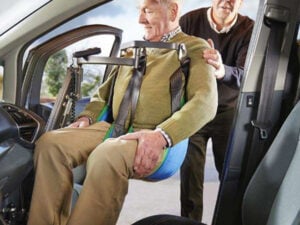





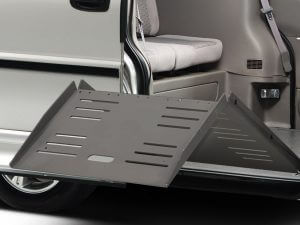

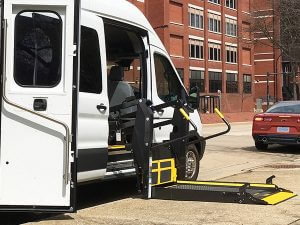


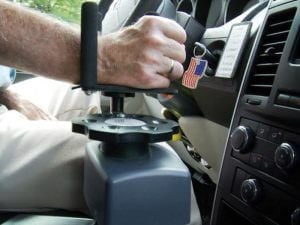

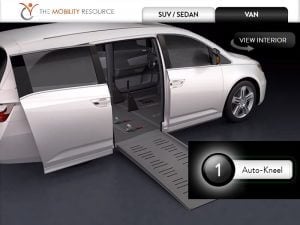




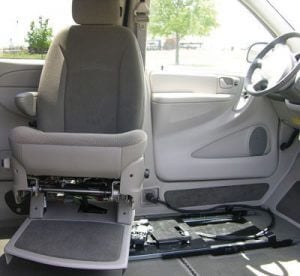
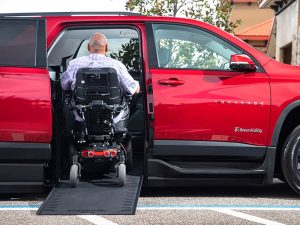
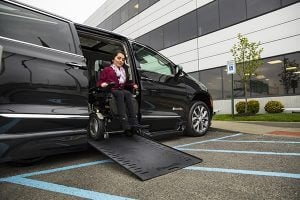

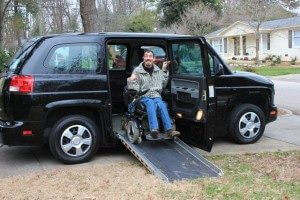







Tweet
Share https://www.themobilityresource.com/blog/post/10-marriage-challenges-caregivers-of-people-with-disabilities-face/